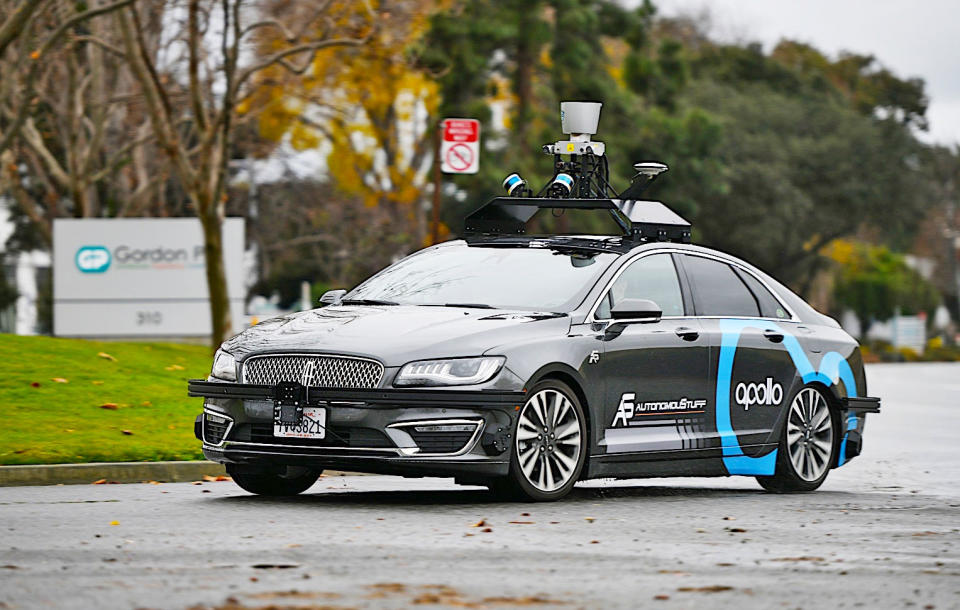Baidu debuts its Apollo 2.0 autonomous driving platform
The self-driving technology can now handle nighttime excursions.
Baidu already bills itself as "the Google of China" and, like the Mountain View-based search giant, it's working feverishly to develop autonomous driving technologies. At CES on Monday, Baidu unveiled the fruits of its (and more than 90 industry partners') labor: the Apollo 2.0 platform.
Building on the success of the original Apollo platform, the newly updated system boasts added security and more robust positioning, control and cloud simulation capabilities. The latest build of Apollo also marks the first time that all four of the platform's primary modules -- cloud services, software, reference hardware and vehicle platforms -- have been leveraged to work together. Through these, Apollo 2.0 is now capable of autonomously guiding a vehicle through basic urban environments, even at night.
Baidu has committed to further developing the platform throughout 2018. The NVIDIA, Intel, NXP and Renesas computing platforms will be fully supported. The company is also working to create more cost effective sensors as well integrate Apollo into a wider variety of vehicles including minibuses, SUVs and pickups.
These added functions will enable Baidu to integrate the Apollo platform into a wider variety of applications from private passenger vehicles to public transportation and ridesharing services. The company also announced that it has partnered with Access Services, a public paratransit provider, and will launch a pilot program in Los Angeles giving disabled folks and senior citizens autonomous car rides by the end of the year. Baidu also plans to begin mass-producing driverless buses, thanks to its partnership with Chinese bus maker King Long, by this August and start rolling out Level 3 autonomous vehicles, with help from Chery Automotive, by 2020.
Click here to catch up on the latest news from CES 2018.



